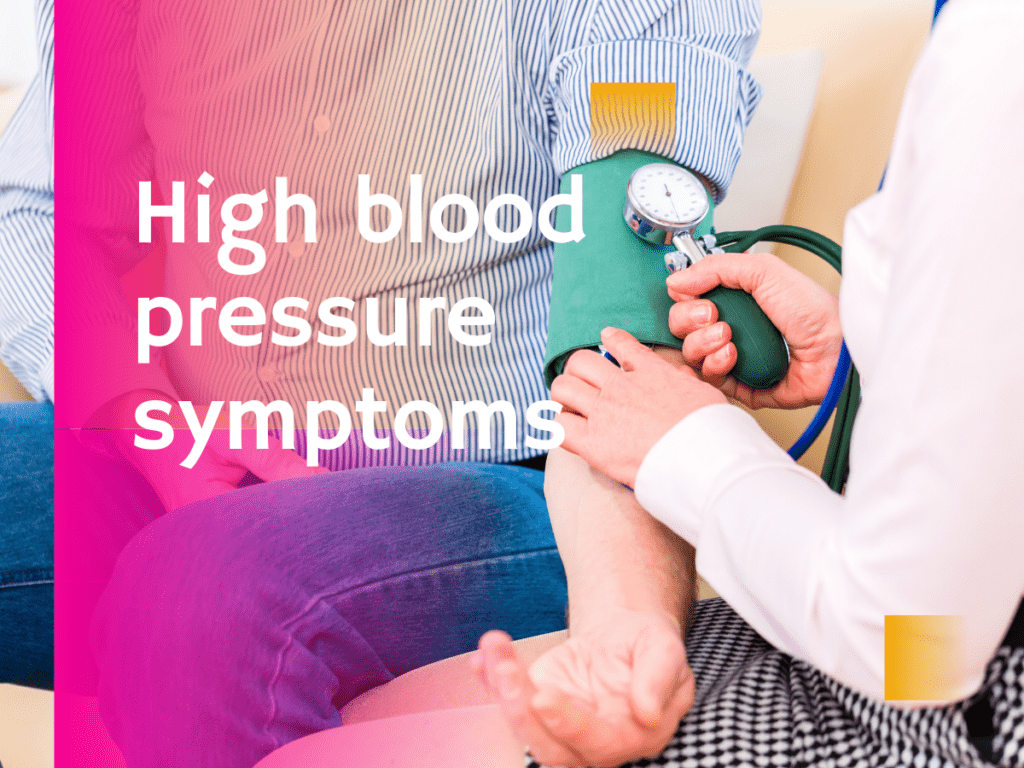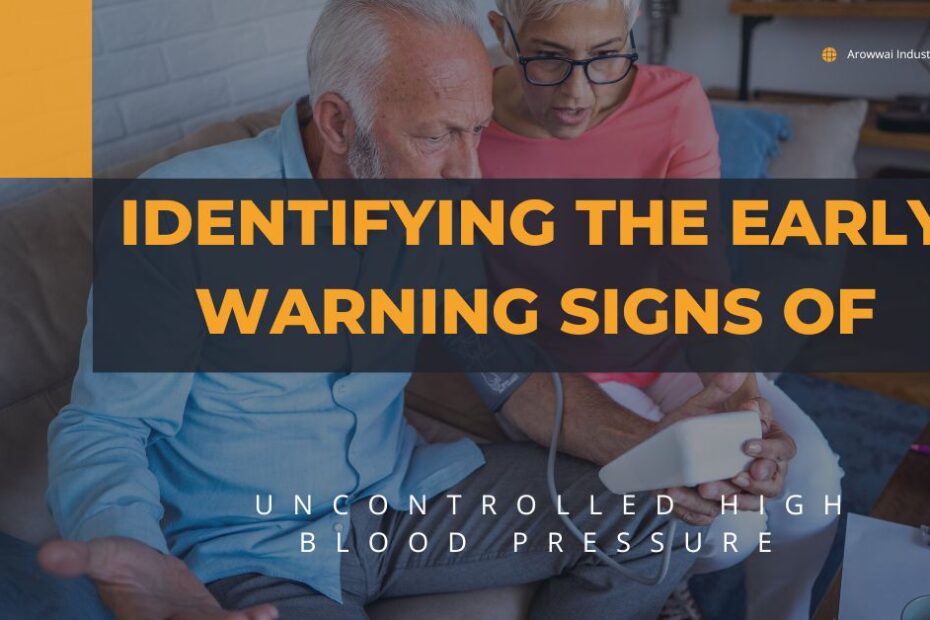Last updated on January 27th, 2023 at 05:13 pm
High blood pressure symptoms
High blood pressure (hypertension) is the most common form of cardiovascular disease, according to the American Heart Association.
Knowing about your body can be very beneficial to your health as you age. Knowing about your high blood pressure (HBP) can help prevent strokes, heart disease, and kidney disease. In this article, you will find everything you should know about your blood pressure. Anyone can have high blood pressure. It doesn’t matter your age, race, ethnicity, or gender.
Blood pressure high symptoms: Many people suffer from high blood pressure and have a higher risk of strokes and heart diseases than those with regular blood pressure.
What is high blood pressure (HBP)?
What is high blood pressure? High blood pressure (HBP) is the force of blood against the walls of your arteries. Your blood pressure is always rising and falling throughout the day and if it rises and stays that way over time, you have high blood pressure. High blood pressure is usually referred to as hypertension. When you have high blood pressure it puts more pressure on the heart, making it work harder than usual. This is why you end up at risk for strokes or heart disease.

7 Recognizable Symptoms of High BP Emergencies
Severe headache: A sudden, severe headache can be a sign of a hypertensive emergency.
Blurred vision: High blood pressure can cause blood vessels in the eye to burst, leading to blurred vision.
Chest pain: Chest pain, or angina, can be a symptom of a hypertensive emergency.
Shortness of breath: High blood pressure can put extra strain on the heart and lungs, leading to shortness of breath.
Nausea and vomiting: Nausea and vomiting can occur as a result of hypertension.
Confusion and disorientation: High blood pressure can affect blood flow to the brain, leading to confusion and disorientation.
- Loss of consciousness: High blood pressure can lead to a loss of consciousness or fainting.
The most common risks of high blood pressure (also known as hypertension) include:
Heart disease: High blood pressure can damage the heart and blood vessels, leading to a higher risk of heart attack and stroke.
Kidney damage: High blood pressure can also damage the kidneys, leading to a higher risk of kidney disease or failure.
Vision loss: High blood pressure can cause damage to the blood vessels in the eyes, leading to vision loss or blindness.
Memory loss: High blood pressure can cause damage to the brain, leading to memory loss or cognitive decline.
Sexual dysfunction: High blood pressure can cause erectile dysfunction in men and decreased sexual desire in women.
Sleep apnea: High blood pressure is often associated with sleep apnea, a condition that causes interrupted breathing during sleep.
- Metabolic syndrome: High blood pressure is often associated with metabolic syndrome, a cluster of conditions that includes high blood sugar, excess body fat around the waist, and abnormal cholesterol or triglyceride levels.
Who can get HBP?
Unfortunately anyone can get high blood pressure but it is more common among African Americans. Nearly one in three American adults has high blood pressure. African Americans also have a much higher death rate from kidney disease and stroke than white Americans. Even so, with treatment, you can help lower your blood pressure.
How can I lower my blood pressure?
Fortunately, there are many different ways of helping to lower your blood pressure: Exercise is a great way to lower it. Doing physical activity will make your heart stronger over time. If you have a stronger heart it can pump blood easier lessening your risks of stroke and kidney diseases. It is never too late to start exercising!
Making small changes to your habits, such as eating a lower sodium diet, getting regular exercise, maintaining a healthy weight, limiting alcohol intake, and quitting smoking can lower your blood pressure by 10-20 mmHg or more.
Source:
https://www.upmc.com/services/south-central-pa/heart-vascular/conditions-services/high-blood-pressure

Thank you for raising awareness about the importance of monitoring blood pressure. It’s a crucial step toward a healthier life. Don’t forget to find joy in small victories along the way—whether it’s a mindful walk or a heart-healthy recipe. Keep prioritizing your health!